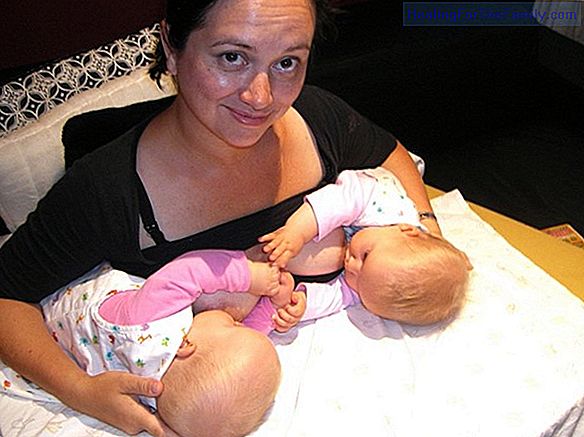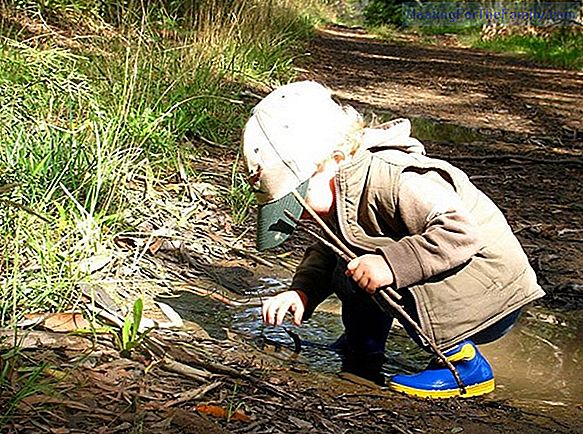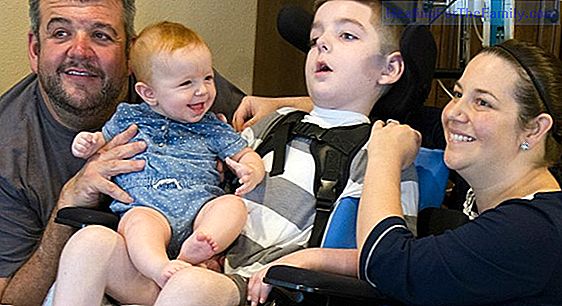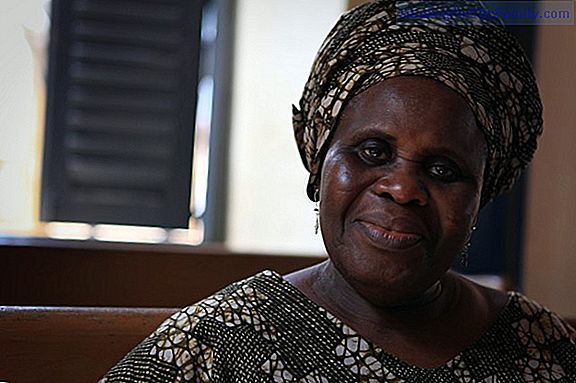When the baby has started language development but stops talking
What could have happened to a child who has started language development but stops talking? The disorders and problems of children's language are varied and can be related to maturational factors of the child, environmental (the stimulation received), neurological, organic factors (auditory deficit
What could have happened to a child who has started language development but stops talking? The disorders and problems of children's language are varied and can be related to maturational factors of the child, environmental (the stimulation received), neurological, organic factors (auditory deficit for example), etc. And, sometimes, these language difficulties are signs or symptoms of a developmental disorder or an emotional problem in children, such as an Autism Spectrum Disorder, (language is a sign, but not the only one) or a childish silence
Babies who have started the language development but stop talking
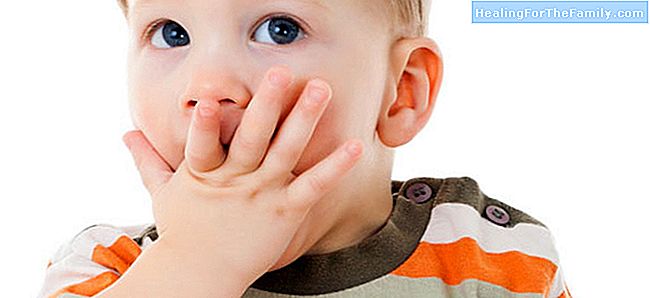
The child who does not speak is not the same as the child who started the language and suddenly stops talking. In the first case we speak of a language delay and in the second case of a child Mutism case.
The reasons why a boy or girl stops talking can be varied and are not very evident (they are not seen). They can be:
- Overprotection of parents: children stop talking because it is not necessary, that is, it is not functional. He does not need to talk because mom and dad meet all their needs without the child having to express himself or the child makes any sound that the parents understand, (although the rest of the world does not) and then the child does not need to talk.
- Lack of stimulation: in those cases in which the child has no response from the adult when speaking, there is no interaction, no speech stimulation, no gratification or reinforcement of the child's communication. El - Excessive worry
and pressure from parents because their child does not speak can generate a "negativist" attitude in the child to speak. - Stressful situation or emotional problem.
A divorce, the death of one of the parents or a loved one, the ambivalent attachment style, the carelessness of the parents towards the baby or the child, can lead to a situation in which the child refuses to speak or interrupt the development of language. - Excess anxiety in social situations,
the child feels unable to speak in social situations where it would be expected, (in class, in front of unknown or not very well known adults ...). Mutism in childhood
Mutism is a total or partial inhibition or disappearance of language suddenly or progressively in one or several social situations (speaking at home and not at school, speaking with mom but not with dad, or do not talk to anyone). Children with mutism have the ability to speak and understand language and a language competence appropriate to their age.
Some children with selective or total mutism are very shy, withdrawn or insecure children,
what can be the trigger and on the other hand aggravate the language problem, (that is why work with these children can include some other professional besides the speech therapist).This language disorder,
also involves high levels of personal suffering , and has important problems of adaptation to the environment influencing affective-emotional development, as well as the child's social, personal and academic development.The age of onset is usually before five years, from 3 years, although it is usually more striking after 5 or 6 years, and it does not have to be the same in all social contexts. The duration of these situations is variable and will depend a lot on each child, the environment, and the intervention that takes place.
In any of these situations, in which the child initiates the language and suddenly disappears, the intervention of the appropriate professionals is essential (child psychologist and speech therapist)
The first thing that must be done is to assess and evaluate if it is of a delay in the acquisition of language, or the sudden disappearance of it, if it is a selective or generalized mutism, (speaks with some people and not with others, in what situations occurs, whether in school, or in home or both, for example) and what situation may have triggered such a situation.
It is always necessary to rule out any auditory, neurological, or developmental problems of the child that may be behind this "mutism" (since the treatment will not be the same) and it will be necessary to intervene in addition to the child, with parents and also educators, to give guidelines for action with the child.
What to do if the baby stops talking - Do not press the child in situations that he does not want to talk about, not force him to do it or get angry.
- Try to reduce possible stressors, (excess of activities, expose him to situations that generate anxiety ...) Por - On the other hand not overprotect, not speak for him, or avoid at all costs "public" situations. Normality first of all, neither pressure nor avoidance.
- Give the child confidence in himself, make him see that we value him.
- And, of course, go to a professional.

